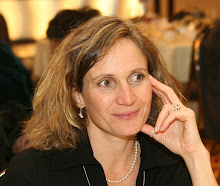Wednesday, February 27, 2008
Multi-tasking and Context-Switching
I have so many colleagues, friends, and mentors who have been in academia for years and years. They provide me with a lot of advice (almost all of it welcome) and suggestions. Just before I left IBM, one of my university colleagues told me that in academia I would find I was switching a lot between several different things -- more so than I did in industry. I remember thinking that could not be possible! At IBM, I switched between issues and topics every 30 minutes or so (back to back 30-60 min. meetings for 8 hours straight) with "sametime" (instant messages) and emails interrupting those 30-60 min. sessions for additional completely unrelated questions.
It's true that I switched more in IBM but it's also true that most of those switches were externally triggered (go to the next meeting now, respond to the urgent email request now, etc.). They were also easy to check of a list: that's done; that's done; next?
Now, I am switching between many different topics and activities (more so than I thought I would). In most cases, I have to schedule and initiate those switches. And because everything is so new, it takes me much longer to do some things than it should (or I tend to spend way too much time on some things than I should). And many of these activities are longer in duration and harder to declare as "done". Recently, in a faculty meeting, it was declared that we would meet weekly on the specific topic until we were done. A colleague remarked, "I just wish I knew what 'done' looked like!"
I actually enjoy switching between things. I have to get better at figuring out when to switch and when to keep going and, of course, when I'm "done" with something.
Thursday, February 14, 2008
What is Service Science?
So, I’ve arrived here (at the
Service science (I am using this term – others may say “service science, management and engineering (SSME)” or simply “services”) is being called an emerging discipline. There is a big push in IBM and other companies to address this area and engage with academia to do so because the services sector (vs. manufacturing and agriculture) is the fastest growing segment of the economy in most if not all nations. Because of this significant economic shift and human labour migration, there is a claim that there is a need for organizations to be more systematic about services and services delivery; therefore, there is a need for research and innovation in services and for service science research and teaching programs to emerge (See Communications of the ACM July 2006 and IBM Systems Journal January 2008.
Programs are emerging in business schools, computer science and engineering schools, and through new multidisciplinary institutions. There are a host of others.
Establishing a research and teaching program in service science requires a multidisciplinary approach. It must combine knowledge about computing and technology with the social and cultural implications of how technology will be used in a specific business or societal service domain (or service system). I’m a computer scientist at heart and a proud member of the computer science community. I am very interested in how research advances in computer science can be made in order to impact something of importance (perhaps even change the world). I am fascinated by how these advances require understanding of and participation by people and society. Therefore, service science (as I understand it) is a very exciting area for me.
Most research to date has focused on service science with an underlying assumption that the service system or service is a business / profit service. Very broadly, I’m interested in service science in which the “business” domains are not-for-profit or community organizations. Most literature today assumes the services business is a profit-making entity. I will focus on the not-for-profit and community services organizations such as libraries, museums, healthcare facilities, etc. My initial investigations show that there are many interesting problems that come up in these contexts that are not prevalent in business environments.
So, that’s a start … within this framework, I’ve identified several interesting problems that I will blog about in future posts.
